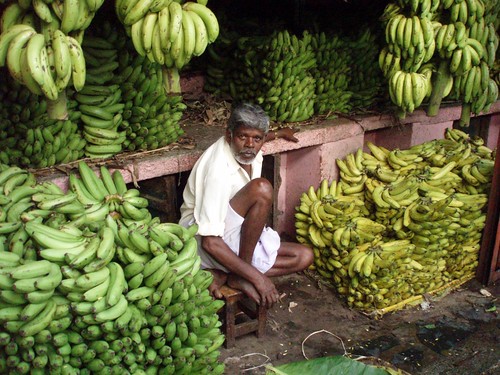Chiquita is the world’s leading supplier of bananas. In doing a little research on the banana industry I began with their website. Reading over Chiquita’s core values might give you new hope for the business world. Chiquita’s stated core values include integrity, respect, opportunity, and responsibility.i However, a closer look at Chiquita tells another story.
History in Guatemala
In the 1950s Chiquita Bananas, then the United Fruit Company, owned a huge portion of land in Guatemala. In fact it controlled about 60% of the banana and pineapple trade worldwide. The newly elected Arbenz government in Guatemala was elected under the promise of remedying the unequal land distribution. In 1945 over eighty percent of the population was rural yet 2.2% of the populace controlled 70% of the land while using only 12%.ii
In purchasing back the land for redistribution, the Arbenz government based the price of land to be purchased back for redistribution on what the company had declared its value of unus
 ed land at during tax time. The United Fruit Company had undervalued it’s land, paying less than it was worth in taxes. Being much larger than the Guatemalan government, they began a lobbying campaign to remove the elected government, eventually gaining a hearing with U.S. President Eisenhower and the CIA. CIA agent Howard Hunt later felt betrayed saying, “Hey, you know, I’m working for the United States, I'm not a hireling for United Fruit.” iii
ed land at during tax time. The United Fruit Company had undervalued it’s land, paying less than it was worth in taxes. Being much larger than the Guatemalan government, they began a lobbying campaign to remove the elected government, eventually gaining a hearing with U.S. President Eisenhower and the CIA. CIA agent Howard Hunt later felt betrayed saying, “Hey, you know, I’m working for the United States, I'm not a hireling for United Fruit.” iiiThis connections between the United Fruit Company and the US government ran deep. Secretary of State John Foster Dulles ran a law firm that represented the United Fruit Company. His brother Allen was director of the CIA. Assistant Secretary of State for the Inter-American Affairs John Moors Cabot was the former President of the United Fruit Company.
CIA documents released in 1997 disclosed direct American support for the mil
 itary coup that would topple the new democracy. From the 1950s to the 1990s the US supported a series of Guatemalan military rulers that are responsible for 140,000 to 250,000 deaths.iv For forty years we armed this tyrant state with only a brief interlude during the Carter administration. Bill Clinton, in 1999, made an official apology for US support of the Guatemalan military.v
itary coup that would topple the new democracy. From the 1950s to the 1990s the US supported a series of Guatemalan military rulers that are responsible for 140,000 to 250,000 deaths.iv For forty years we armed this tyrant state with only a brief interlude during the Carter administration. Bill Clinton, in 1999, made an official apology for US support of the Guatemalan military.vThe political control of the United Fruit Company, Dole and other major players led to much of Latin America being coined the banana republic, a term that essentially recognized the political instability created by the small group of elite responsible for the fruit trade in Guatemala, Honduras, Belize, El Salvador and
 Nicaragua.
Nicaragua.Same Company, Different Name: From the United Fruit Company Yesterday to Chiquita Today
In 1997 three Costa Rican workers were not warned about fumigation and were harvesting bananas when they became sick and nauseous. One went to the hospital where he remained on an IV drip for a few hours. Another reported the incident to his superiors and was sent home. One of the workers reported to work the next day, and the nausea returned. He was forced to stay. Two of the men reported the incident to Chiquita. They were fired.
Chiquita regularly intimidates workers using private militia as well as carelessly and dangerously using pesticides.vi In the same year Chiquita was fined $25 million by the United States Justice Department for its ties to Columbian paramilitary groups.vii
 Beyond Chiquita
Beyond ChiquitaBananas are the world’s most popular fruit. Farmer prices for bananas can be as low as six cents a pound, which in Ecuador can translate into many workers being paid around one dollar a day. Banana plantations in Central America apply around 30 kg of active pesticide per hectare, ten times the average of industrial agriculture in industrialized countries. Many of these chemicals are considered extremely toxic to humans.viii
Beyond Bananas
It is unfortunately true that rather than being an exception, bananas represent the rule in international business. From child trafficking in chocolate, to sweat shops, to blood diamonds fuelling ongoing wars in Congo and oil in Iraq, it is time to recognize the blood on our hands. It is time to consume in ways that foster real prosperity and peace.

No comments:
Post a Comment